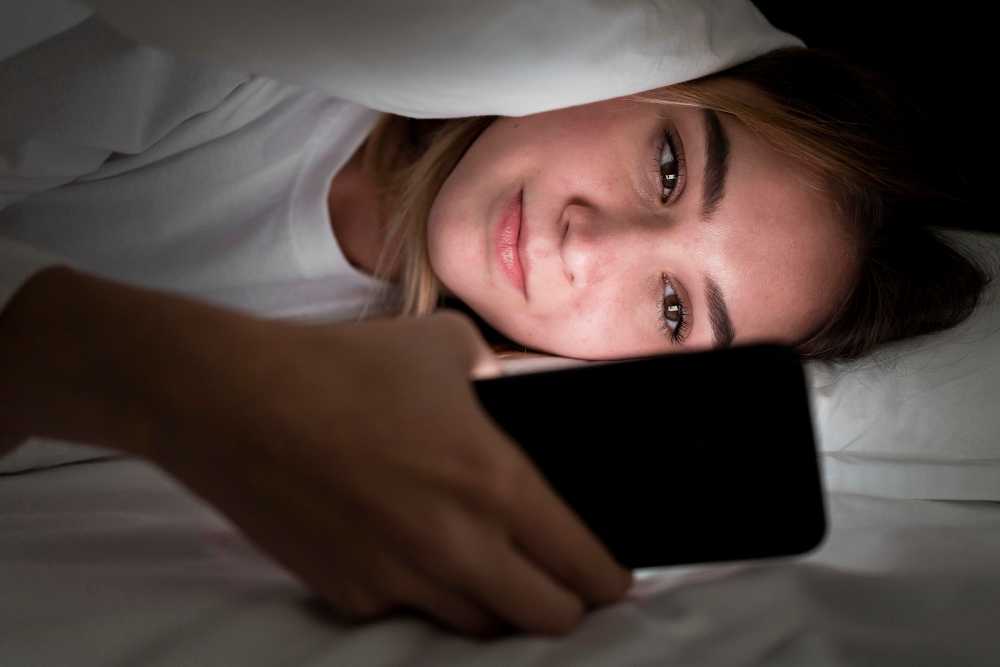
In this age of constant connectivity, where screens illuminate our lives, a silent culprit might be stealthily pilfering our precious sleep: blue light. How does blue light affect your sleep, and what secrets does the sleep thief hold? Let’s delve into the mystery. We’ve all been there, eyes glued to our smartphones, binge-watching on tablets, or burning the midnight oil on laptops.
What most of us don’t realize is that the very screens that enhance our daily lives might be sabotaging the quality of our sleep at night.
The Blue Light Intruder
Blue light, a high-energy visible (HEV) light, is a natural component of sunlight and is also emitted by many of our electronic devices. Its daytime role is to boost attention, reaction times, and mood – the perfect companion for our daylight endeavours.
However, when the sun sets, subjecting ourselves to artificial blue light in the evening can throw a wrench into our sleep-wake cycles.
The Circadian Conundrum
Our bodies dance to a 24-hour rhythm called the circadian cycle. Blue light exposure at the wrong time can throw this rhythm off balance, leading to sleep disturbances and a groggy awakening. It’s like expecting your favourite TV show to air at the usual time, only to find it playing in the middle of the night – disorienting and confusing.
Blue Light vs. Melatonin: A Clash of Titans
Ever wondered why it’s tougher to doze off after a late-night Netflix binge? Blue light plays a sneaky game, suppressing melatonin production – the hormone that orchestrates our sleep. Imagine melatonin as the conductor guiding your body into a serene sleep symphony.
Now, picture blue light barging in, interrupting the maestro and causing chaos – that’s the disarray it brings to your sleep patterns.
Screens: The Silent Saboteurs
Our constant companions – smartphones, tablets, and laptops – are the primary carriers of this sleep-disrupting blue light. Staring at these screens, especially in the evening, signals to our brain that it’s still daytime, delaying the release of melatonin and making it harder for us to wind down.
It’s like trying to find tranquillity amid a bustling city – nearly impossible.
Now that we’ve unmasked the sleep thief, how do we shield our rest from its clutches? It’s not about bidding adieu to technology – that’s impractical. Instead, let’s arm ourselves with strategies to outsmart the blue light.
1. Dim the Lights
Think of your screen’s brightness as the volume control for blue light exposure. Lower it in the evening to reduce the intensity, signalling to your brain that it’s time to wind down. It’s like having a soft jazz concert instead of a rock concert before bedtime.
2. Embrace the Warm Glow
Opt for devices with warm-toned lights or use the “night mode” or “blue light filter” settings. It casts a gentle, amber hue that’s kinder to your sleep-inducing melatonin.
3. Invest in Blue Light Blocking Glasses
For the night owls, consider blue light-blocking glasses. Stylish spectacles that act as a shield against the sleep-disrupting effects of blue light, allowing you to enjoy your content without sacrificing sleep.
4. Unplug an Hour Before Bed
Establish a digital curfew. Give your eyes and brain a break from screens at least an hour before bedtime. Engage in calming activities like reading a book or taking a warm bath. It’s like letting your mind switch from a high-energy dance floor to a tranquil, moonlit garden.
5. Let Nature Set the Tone
Expose yourself to natural light during the day, especially in the morning. It helps regulate your circadian rhythm, making it easier for your body to differentiate between day and night. It’s like giving your internal clock a reliable timekeeper to sync with.
Conclusion: Wrangling the Blue Light Beast
In the quest for a restful night’s sleep, understanding the role of blue light is pivotal. By making simple adjustments to our tech habits and incorporating sleep-friendly strategies, we can reclaim the peaceful slumber that blue light seeks to steal from us.
FAQs For How Does Blue Light Affect Your Sleep Cycle
Q1: Can blue light affect my overall health, or is it just about sleep?
A: Blue light has been linked to various health issues, including eye strain, digital eye fatigue, and disruptions to the circadian rhythm, impacting overall health.
Q2: Are there any long-term effects of exposure to blue light?
A: Prolonged exposure to blue light, especially at night, has been associated with an increased risk of insomnia, mood disorders, and potential long-term disruptions to sleep patterns.
Q3: Can children be affected by blue light in the same way as adults?
A: Yes, children and teenagers are susceptible to the effects of blue light, and excessive screen time, especially before bedtime, can disrupt their sleep patterns.
Q4: Do blue light-blocking glasses really make a difference?
A: Blue light-blocking glasses can help reduce the impact of blue light on melatonin production and sleep quality, especially when used in the evening.
Q5: Is it okay to use electronic devices before bedtime if I use a blue light filter?
A: While using a blue light filter is helpful, it’s still advisable to limit screen time before bedtime. The content and the mental stimulation from the device can also contribute to difficulty falling asleep.
Q6: How do blue light filters work on devices, and do they help?
A: Blue light filters on devices reduce the amount of blue light emitted, especially during the evening. While they may not eliminate all blue light, they can help mitigate its impact on melatonin production.
Q7: Are there any natural sources of blue light, apart from electronic devices?
A: Yes, the sun is a natural source of blue light. However, its exposure during the day is beneficial for regulating circadian rhythms and improving alertness.
You May Also Like:
- 5 Herbal Decoctions That Improve Health
- 10 Simple Healthy Habits For A Stress-Free Life
- The Top 7 Natural Omega-3 Sources for a Health Boost
- Supercharge Your Well Being With Yoga
- Best After Meal Drinks That Can Aid Digestion
- Benefits of Eating Fruits for Breakfast
- How to Become Mentally Strong: Achieve Anything
- Top 10 Do’s and Don’ts of Healthy Living
- 10 Tips For A Healthy Lifestyle

